MIT SCHOOL OF HUMANITIES, ARTS, AND SOCIAL SCIENCES
Media + Awards Digest | July 2021

The Media Digest is a section of the Said and Done newsletter. Subscribe
Office of the Dean | 26 July 2021
Dear Friends,
As I write, the MIT community is looking forward to being together again this fall — reuniting physically after the remote months necessitated by the pandemic. We are eager to be back on a campus alive with people and our unique MIT culture!
And, of course, in some profound ways, over the past sixteen months we have all along sustained our ability to be together. We have collaborated to help stem the pandemic; combined efforts across many fields to address climate change; worked together to alleviate poverty, advance racial equity, and protect democracy — among other efforts to shape a livable future.
Each month, the content of the Media Digest reflects the many issues involved in that quest. And its contributors demonstrate the significance of MIT’s humanistic research for understanding the issues and shaping public discourse. To name just a few highlights of the most recent contributions:
In international relations, political scientists Barry Posen and Fotini Christia provided expert opinion on Afghanistan in the journal Foreign Affairs. Economist and Institute Professor Daron Acemoglu appeared on NPR’s "Planet Money" to discuss automation and inequality. The Wall Street Journal and other outlets covered research co-authored by James Poterba, professor of economics, that advocates cost-benefit analyses of proposed infrastructure projects; the study find that repairing infrastructure can often be a better investment than new construction.
In The New Yorker, Professor of Philosophy Caspar Hare added perspective to an essay on our complex relationship with Time. Ethics in technology are explored in a New York Times piece, which includes a book quote from STS Professor Sherry Turkle: “We cede to the computer the power of reason, but at the same time, in defense, our sense of identity becomes increasingly focused on the soul and spirit in the human machine."
On a personal note: As most of you know, this letter for the Media Digest is my last as Dean of MIT SHASS; in a few weeks, I take on a new responsibility as Chancellor of MIT. But I will be taking the perspectives of MIT's humanistic fields with me, and will continue to champion problem-solving that draws on discoveries from across the humanistic, technical, and scientific fields. I’ll also continue to support and help strengthen our commitment to compassion and community.
In a recent letter, President Reif invokes compassion, encouraging us to “look out for each other with patience, generosity and understanding.” Practicing this wise advice will surely help us on the road ahead, which has many uncertainties. The pandemic is still with us, and still evolving. Systemic racism continues to wreak destruction in society and individual lives. The climate crisis is upon us. As a nation, as a democracy, we are in a period of extreme polarization.
In such times, being strong in community — being kind; keeping our minds and hearts open to listening; respecting the value of diverse and collective intelligence — is among the greatest powers we have for finding the way forward.
With continued gratitude,
Melissa
Melissa Nobles
Kenan Sahin Dean
Professor of Political Science
MIT School of Humanities, Arts, and Social Sciences
MEDIA DIGEST
HISTORY
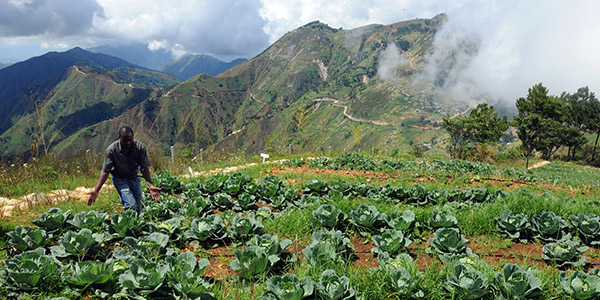 Farm in Haiti; image via Wikipedia
Farm in Haiti; image via Wikipedia
AMERICAS QUARTERLY
How the U.S. could really help Haiti | Malick Ghachem
Foreign involvement is inevitable, but mistakes of the past can be avoided. MIT Professor of History Ghachem, an expert in constitutional law and Haitian history, says Haiti will benefit from a "political and constitutional reboot" combined with a "social contract in which international institutions support the country’s least well-off citizens."
Commentary at Americas Quarterly
NBC
Haiti and durable democratic institutions | Malick Ghachem
“The last time a Haitian president was assassinated was 1915, and it triggered a U.S. military occupation,” Ghachem says. He encourages the U.S. and international community to engage the country in a dialogue “that permits Haiti to exit its current constitutional void and gives it a chance to set in place durable democratic institutions.”
Story at NBC

1964 Olympic Stadium in Tokyo; photo: Donald Uhrbrock/Getty Images
THE NEW YORK TIMES
The 1964 Games proclaimed a new Japan | Comment by Hiromu Nagahara
Back in 1964, there was “a sense of Japan in motion and a sense of a country with a future,” said Nagahara, MIT professor of history. Now, it’s “a country that has lost confidence and a country whose political elites feel very intensely that loss of confidence.”
Story at The New York Times
THE WASHINGTON POST
July 4th is Independence Day for two countries. For one it is hollow. | Chris Capozzola
MIT professor of history Capozzola writes, "most Filipinos won’t be marking today’s anniversary as a national holiday. Why? Because for the Philippines, independence from the United States didn’t bring full national sovereignty."
Story at The Washington Post
POLITICAL SCIENCE
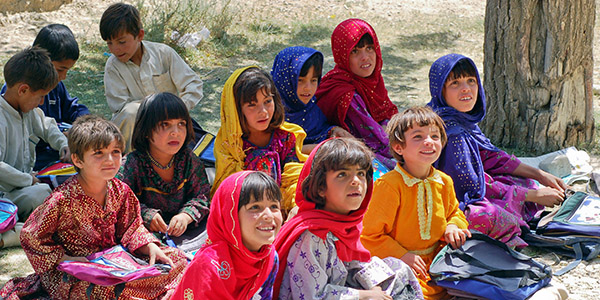 The number of Afghani children attending school at primary level has increased from 5% in 2000 to 57% in 2018
The number of Afghani children attending school at primary level has increased from 5% in 2000 to 57% in 2018
FOREIGN AFFAIRS
Is Washington right to leave Afghanistan? | Barry Posen, Fotini Christia
Foreign Affairs recently published a number of pieces on the impact of the withdrawal of U.S. forces from Afghanistan. To complement these articles, they decided to ask a broad pool of experts, including MIT political scientists Posen and Christia, for their take.
Commentaries at Foreign Affairs
THE WASHINGTON POST
Did Pope Francis put a politician on the path to sainthood?| Emma Campbell-Mohn
Campbell-Mohn, a PhD student in the MIT Security Studies Program, writes that on June 19, Pope Francis decreed that former French foreign minister Robert Schuman had lived a life of “heroic virtue” and bestowed the title of “Venerable” on him. Proof of “heroic virtue” is a step on the path to sainthood, followed by beatification and sanctification.
Commentary at The Washington Post
CENTER FOR POLICY RESEARCH
The road ahead for Sino India Relations | Taylor Fravel
Where do relations stand with India and China one year after the conflict in Galwan?
Conversation at Center for Policy Research
ECONOMICS

THE WALL STREET JOURNAL
Which infrastructure projects are really worth doing? | James Poterba
A new paper co-authored by Poterba, Mitsui Professor of Economics at MIT, says the gains from infrastructure spending aren’t always clear-cut and recommends that policy makers examine the costs and benefits of each project. “If we are going to commit a significant amount of resources to new infrastructure projects or to maintain our existing infrastructure, bringing some discipline to the way we decide what we’re spending on is important,” said Poterba.
Story at The Wall Street Journal
WBUR
MA employers try special incentives to boost their workforce | David Autor
It is difficult to predict how long the shortage of workers will last, says Autor, Ford Professor of Economics at MIT. But he sees this phenomenon as a good thing for the economy.
Story at WBUR
THE NEW YORK TIMES
Is the pandemic wave of automation bad news for workers? | Daron Acemoglu
Institute Professor Acemoglu said that many of the technological investments had replaced human labor but without adding much to overall productivity. Acemoglu concluded that “a significant portion of the rise in U.S. wage inequality over the last four decades has been driven by automation."
Story at The New York Times
WGBH
Jonathan Gruber on the economics of the music industry
Gruber, Ford Professor of Economics at MIT, explains the economics behind the music industry as more music venues reopen for live shows. He also comments on the lack of revenue for musicians from streaming services and album releases.
Commentary at WGBH
THE WALL STREET JOURNAL
Many jobs lost during the pandemic aren’t coming back | Daron Acemoglu
The U.S. tax code encourages investments in automation, particularly after the Trump administration’s tax cuts, said Acemoglu. Firms pay around 25 cents in taxes for every dollar they pay workers, compared with 5 cents for every dollar spent on machines because companies can write off capital investments.
Story at The Wall Street Journal
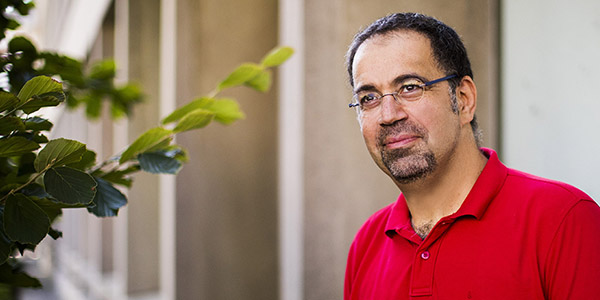
Economist and Institute Professor Daron Acemoglu; photo by Adam Glanzman
NPR | PLANET MONEY
A new way to understand automation | Daron Acemoglu
Greg Rosalsky of NPR’s Planet Money spotlights MIT Institute Professor Daron Acemoglu’s research exploring how automation is driving inequality in America. Acemoglu hopes his research “will get policymakers to take a new, smarter approach to technological change.”
FORBES
How to adopt AI while protecting employees | Work of the Future
AI often opens opportunities for innovative business offerings and new roles that can improve your competitive advantage, as in Best Buy’s adviser program. “More than 60% of jobs performed in 2018 had not yet been invented in 1940,” according to an MIT report.
Story at Forbes
THE WASHINGTON POST
The AI we should fear is already here | Daron Acemoglu
Current AI technology is already impacting the labor market, criminal justice system, and political discourse. Economist and Institute Professor Acemoglu calls for societal and governmental oversight to regulate AI's effects on the economy and democracy.
Opinion at The Washington Post
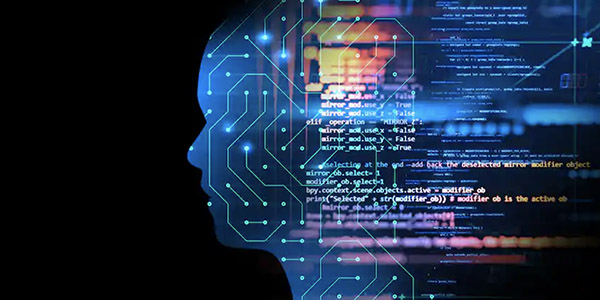
Image iStock, via The Washington Post
CNBC
Why aren't people going back to work? | Esther Duflo
Nobel laureate and poverty researcher Duflo says the political debate over unemployment benefits and a tight labor market misses the bigger picture of how Covid has changed the world, while also highlighting some long-term social issues.
Story at CNBC
THE WALL STREET JOURNAL
Biden stakes out position in debate over corporate power | Nancy Rose
"There are reasons to be cautious about concluding that market concentration has risen or is a meaningful problem for market competition and consumer welfare,” Rose concluded in a 2019 examination of research on the issue.
Story at The Wall Street Journal
CRITICAL RESPONSE
LINGUISTICS
The Mental Life of Modernism | Talk by Samuel Jay Keyser
"I would like to place another explanation for Modernism on the table," says Keyser, a professor emeritus of linguistics. "I would like to suggest that Modernism resulted from a cognitive shift away from bodies of knowledge (I call them rules) that catered to the natural predilections of the brain to new bodies of knowledge that didn’t. I suggest that this shift is not new but occurred once before in western intellectual history: namely, when Isaac Newton’s view of the relationship between physical objects displaced the mechanistic view at the turn of the 17th century."
Watch Seminar Talk on YouTube
THE NEW YORK TIMES
Can Silicon Valley find God? | Comment by Sherry Turkle
In an opinion essay, Linda Kinstler reflects on Turkle's 1984 book The Second Self and how computer culture was prompting a “new romantic reaction” concerned with the “ineffable” qualities that set humans apart from machines.
Opinion at The New York Times
THE NEW YORKER
Being in Time | Comment by Caspar Hare
An article by Paul Bloom quotes MIT philosopher Hare: “It is not an accident that we are future-biased with respect to pain," Hare writes. "That feature of ourselves has been selected for by evolution.” In general, he says, it seems likely that animals that focused their attention on the future survived longer and reproduced more.
Article at The New Yorker

Detail, illustration by Jonathan Djob Nkondo, The New Yorker
THE GUARDIAN
Why is it so hard to do something for enjoyment’s sake? | Kieran Setiya
MIT philosopher Setiya has taken a lead from Aristotle to put forward the idea that we need both telic (taken from the Greek word telos, meaning “goal”) and also atelic activities in our lives.
Story at The Guardian
THE CONVERSATION
5 digital games that teach civics through play | Karen "Kat" Schrier, SM '05
Gamers practice important skills related to civics and public life, like communication, empathy, and compassion (even when there’s violence in the game).
Article at The Conversation
POPULAR SCIENCE
Inside the video game project trying to preserve Indigenous sports | Rik Eberhardt
By digitizing games like Multicolored Turtle and ear pulling, UNESCO wants to make indigenous games more available and and bring them into the gaming zeitgeist. Rik Eberhardt, program manager of the MIT Game Lab, notes the value of indigenous game and sports, saying that “Most [Western] games have the biases of the colonizers.
Story at Popular Science
SCIENCE WRITING

Illustration by Alex Hogan, via The Boston Globe
STAT
Best health science books + podcasts for this summer | Deborah Blum
In this time of transition, STAT is back with their annual list of health, medicine, and science books to check out this summer — and this time they've thrown podcasts in the mix, too. Blum, director of the MIT Knight Science Journalism Program, reviews The Memory Thief: And the Secrets Behind How We Remember by Lauren Aguirre.
Best Books Roundup at STAT
PUBLICATIONS DIRECTORY
A Convenient, One-Page Portal
Here you will find all the online channels, newsletters, and publications produced by the School's 20+ departments, sections, programs, and centers. Look for current research, news, and commentaries from each of the MIT SHASS fields.
Visit the Publications Directory
HONORS, AWARDS & APPOINTMENTS
STAFF
MIT SHASS
Video event honors the 2020 + 2021 Infinite Mile Award Winners
Join us to salute these great members of the MIT SHASS staff, who come from fields across the School. If you were unable to attend the debut event on 14 July (or just want to watch the celebration again), the event video will be available on the MIT SHASS YouTube channel.
Meet the 2020 and 2021 IMA winners | Watch the Event Video
STUDENTS
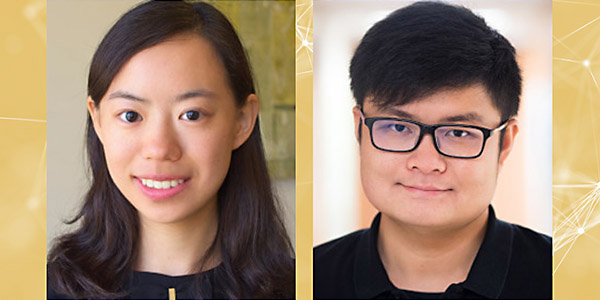
L to R: Political Science PhD students Z.Y. Chris Peng and Wenyan Deng
POLITICAL SCIENCE
Peng and Deng win Best APSA Paper Award
Political Science PhD students Z.Y. Chris Peng and Wenyan Deng have been awarded the Political Organizations and Parties/Party Politics Best APSA Paper Award for their 2020 paper, “Latinization of Organized Labor and Democratic Immigration Positions.”
Announcement at MIT Political Science
WRITING PROGRAM
Li wins 1st in Enterprise Poets Prize
Kwan Queenie Li (SMACT ’22) has been awarded the 1st place Enterprise Poets Prize for Imagining a Future, one of the Ilona Karmel Writing Prizes from the MIT Comparative Media Studies/Writing Program.
Story
FACULTY

ECONOMICS
Institute Professor Daron Acemoglu elected to the British Academy Fellowship
Founded in 1902, the British Academy is the UK’s national academy for the humanities and social sciences. It is a Fellowship of over 1400 of the leading minds in these subjects, a funding body for research, and a forum for debate. Welcoming the Fellows, President Julia Black said that the "need for the SHAPE disciplines – the social sciences, humanities, and the arts has never been greater.”
Full list of new Fellows | Acemoglu webpage
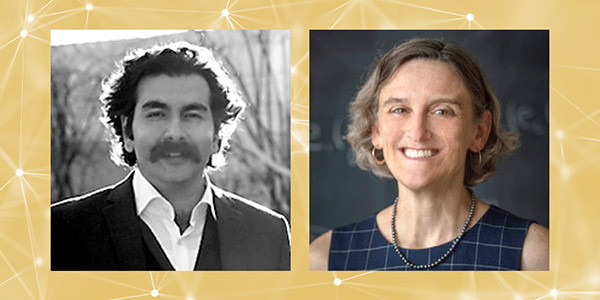
L to R: Amir Anvari, Assistant Professor of Linguistics; Sara Fisher Ellison, New Faculty Director of DEDP
LINGUISTICS
Announcing Amir Anvari
Anvari, a specialist in semantics and pragmatics, will join the MIT Linguistics faculty in January 2022 as an assistant professor. Amir, who comes to MIT from the École Normale Supérieure in Paris, where he received his M.Sc. in 2016 and PhD in 2019, has already done groundbreaking work in the theory of presupposition, scalar implicatures, and indexicality.
Anvari's MIT webpage | Personal webpage
ECONOMICS | DATA, ECONOMICS, AND DEVELOPMENT POLICY PROGRAM
Sara Fisher Ellison named new faculty director of DEDP
As faculty director, Ellison will guide course updates and the creation of new courses, mentor students, and advise the program's management team. More than 40,000 learners from 180 countries have enrolled in online DEDP courses, and the second cohort of in-person students recently concluded their classes on MIT’s campus in Cambridge.
Sara Ellison webpage | About DEDP | Data Analysis for Social Scientists
The Media + Awards Digest is a section
of Said and Done, the School's online digest.
EXPLORE
Follow MIT Now
Updates on our community's path back to campus
Subscribe to Said and Done
10 issues a year
Making a Better World | Research
Browse
Making a Just Society
Explore the Resources
Solving Climate
Browse the Commentaries | MIT Climate Portal
Ethics, Computing, and AI
Full Series
Computing and AI | Humanistic Perspectives
Full Series
Perspectives for the Pandemic
Explore the Series
SHASS on MIT News
Research and Features
MIT Campaign for a Better World
Story | Join Us
Published by MIT SHASS Communications
Office of the Dean, MIT School of Humanities, Arts, and Social Sciences
Editor and Designer: Emily Hiestand
Publication Associate: Alison Lanier
Media Relations Manager: Stephen Oakes
Published 26 July 2021




